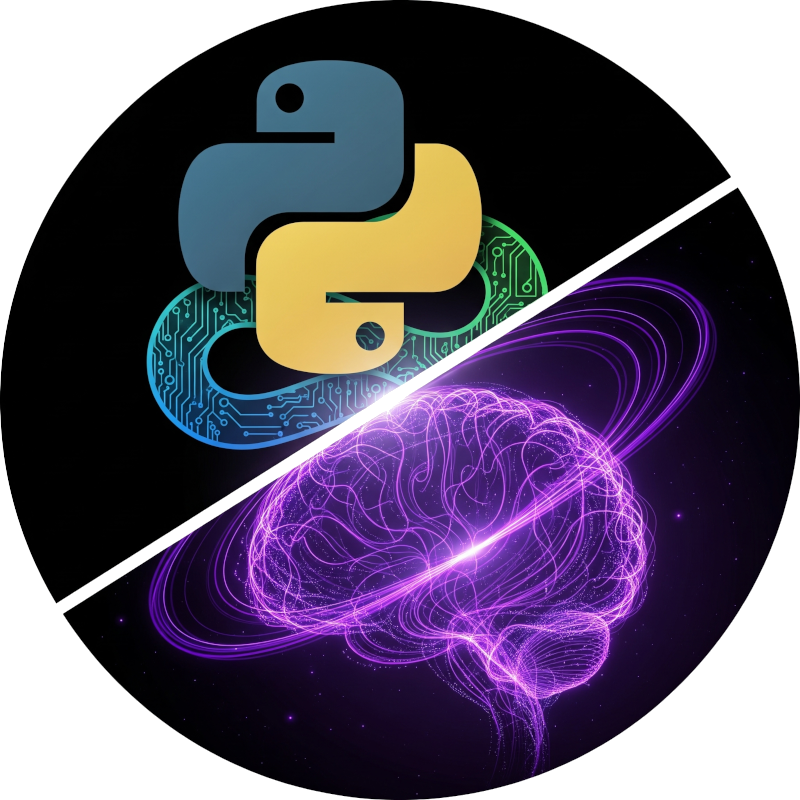PY-105

| Formats: | Asynchronous |
| Blended | |
| Online | |
| Onsite | |
| Part-time | |
| Level: | Beginner |
| Prerequisites: | |
| Recommended Knowledge | |
| Basic computing literacy and comfort with installing software | |
Formats: We offer our training content in a flexible format to suit your needs. Contact Us if you wish to know if we can accommodate your unique requirements.
Level: We are happy to customize course content to suit your skill level and learning goals. Contact us for a customized learning path.
Python Fundamentals For AI APIs (PY-105)
Artificial Intelligence is transforming every industry—from finance and healthcare to retail, logistics, and software development—creating an unprecedented demand for professionals who can harness its potential. Organisations are racing to adopt AI-driven solutions to boost efficiency, improve customer experience, and gain competitive advantage. Python has emerged as the language of choice for AI thanks to its simplicity, vast ecosystem of AI/ML libraries, and strong community support. In this course, you’ll not only master Python fundamentals but also learn how to access and integrate leading AI services such as ChatGPT, Gemini, and Grok APIs directly into your applications. By mastering AI with Python, you position yourself at the forefront of this technological revolution, equipped with the skills to innovate, integrate AI into applications, and advance your career in one of the fastest-growing fields today.
Who Should Attend
This course is designed for:
- Software & web developers upskilling into AI integrations
- Data/BI analysts & engineers who need to automate content or insights
- DevOps/Cloud engineers enabling AI features in internal tools
- Product managers & tech leads wanting a hands-on grasp of LLM capabilities
Prerequisites
Participants should meet the following prerequisites:
- Basic computing literacy and comfort with installing software
- Prior coding experience is helpful but not required—we start with Python fundamentals and ramp up quickly
- The ability to obtain API keys for model providers (covered in class)
What You’ll Learn & Do
By the end of the course, participants will be able to:
- Python Foundations: Variables, data types, control flow, functions, and a gentle intro to OOP—enough to be effective with scripts and small apps.
- Data Handling & JSON: Read/write files, parse/produce JSON, and structure data to match API schemas using Python’s
jsonlibrary. - API Fundamentals: Work with API keys, authentication, HTTP requests with
requests, and safe patterns for calling AI model endpoints (e.g., Gemini, ChatGPT). - Prompt Engineering: Structure instructions, provide context, and use few-shot techniques for reliable outputs.
Career Outcomes
After completing the course, you will be able to:
- Confidently add AI features (summarisation, Q&A, text generation) to apps and workflows
- Demonstrate a working AI prototype to stakeholders—accelerating promotions and new responsibilities
- Bridge product and engineering by translating AI capabilities into practical solutions
- Build a portfolio project that proves hands-on experience with model APIs
Course Description
The course is divided into three progressive modules. You’ll start with Python fundamentals (data types, control flow, functions, and a quick OOP primer), then learn to prepare and validate JSON payloads for APIs. Finally, you’ll work with AI model APIs, practice prompt engineering, and implement robust request/response handling. The capstone is a small application—such as a chatbot or text summariser—that integrates an AI API end-to-end.
Course Outline
Module 1: Python Fundamentals
- Getting Started: Install Python & editor; first program; variables & basic types
- Data Structures: Lists, tuples, dicts, sets
- Control Flow & Functions: if/else, loops, custom functions & methods
- Classes & Objects: OOP basics; classes as blueprints; objects as instances
Module 2: Data Handling & APIs
- File Handling & JSON: Read/write files, JSON format, Python
jsonlibrary - Preparing Data for APIs: Clean/format data; structure dicts & lists to match API requirements
Module 3: Interacting with AI Models
- API Concepts: What is an API, keys & auth, HTTP requests with
requests - Prompt Engineering: Clear instructions, context, few-shot patterns
- Making API Calls: Send POST requests, handle JSON responses, parse results
Final Project: Build a small application (e.g., chatbot or text summariser) that calls an AI API end-to-end.
Tools & Environment
- Python 3.x, a modern code editor, and
pipfor dependencies - HTTP client skills using
requests; basic debugging with logs and printouts - Model provider dashboards for API keys and limits (covered in class)
Why Train with Jumping Bean
Jumping Bean has over 20 years’ experience delivering premium training and consulting. This course offers:
- Expert, practitioner-led training: Senior instructors who build AI solutions in the real world
- Outcome-driven design: You leave with a working mini-app and reusable code templates
- Flexible delivery: Instructor-led, mentored, or self-paced—configure for teams or individuals
- Trusted across Africa & beyond: Decades of premium training and consulting in open-source and cloud
Key Benefits
- Build job-ready AI features with Python and APIs
- Master JSON data handling & prompt patterns
- Create a portfolio-ready AI mini-project
- Accelerate internal POCs and stakeholder buy-in
You Will Be Able To
- Write clean Python scripts for data prep
- Authenticate and call AI model endpoints
- Engineer prompts for reliable results
- Parse API responses and surface value in apps